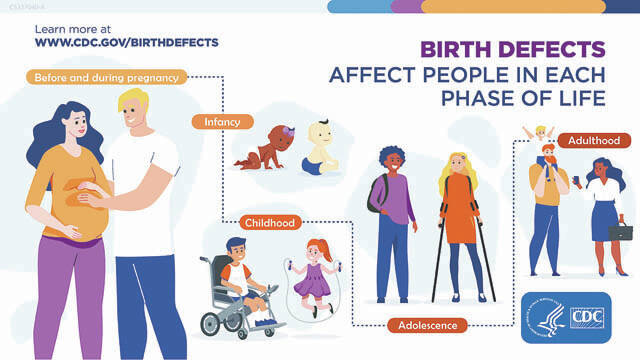By Sherry Larson
People’s Defender
January is designated to raise awareness of congenital disabilities (also known as birth defects) and their impact on individuals, parents, and families.
A list of specific congenital disabilities is extensive that can range from mild to severe. According to cdc.gov, “Major birth defects are structural changes in one or more parts of the body. They are present at birth. They can have a serious, adverse effect on the health, development, or functional ability of the baby.”
“Birth defects can happen for many reasons. Although not all birth defects can be prevented, people can increase their chances of having a healthy baby by managing health conditions and adopting healthy behaviors before becoming pregnant.” Some steps you can take to get ready for pregnancy, stay healthy during pregnancy, and give your baby a healthy start in life include:
• Getting 400 (mcg) of folic acid every day
• Preventing infections
• Seeing a healthcare professional regularly
• Keeping diabetes under control
• Avoiding alcohol, drugs, marijuana, and smoking while pregnant
• Avoiding overheating and treating fevers promptly
Each year, one in every 33 babies born in the U.S. is affected with a congenital disability which is the leading cause of infant death. Congenital disabilities may be discovered before birth, at birth, or any time after. However, the CDC reports that most defects are found within three months of a baby’s birth.
According to childrensnational.org, “There is no cure for birth defects. But children can often be treated to help reduce problems. Treatment will depend on your child’s symptoms, age, and general health. It will also depend on how severe the condition is.”
Education is a crucial element for prevention and treatment. For a list of resources and information about congenital disabilities, visit cdc.gov.





